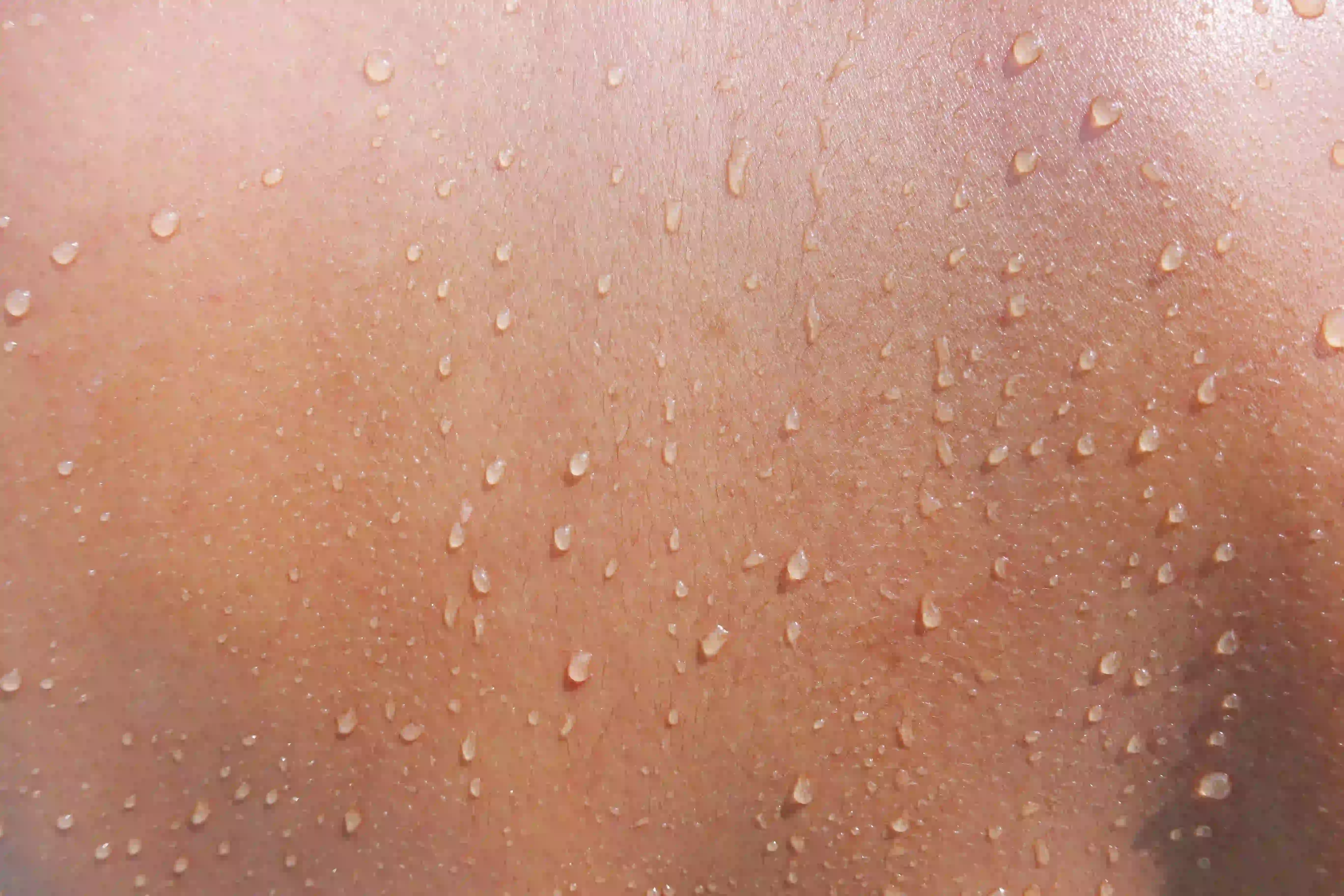Can Anxiety Cause a Rash?
Highlights
-
An anxiety rash, often categorized as a stress rash, is triggered by the hormonal changes in the body when a person feels anxious or stressed.
-
These rashes can include raised welts and may appear as a cluster or individual welts.
-
If you have a rash that is accompanied by difficulty breathing, you should seek medical attention immediately.
What is an Anxiety Rash?
Also known as a stress rash or hives, an anxiety rash is a type of skin condition that is triggered as a response to psychological stress.
An anxiety or stress-induced rash can either look like clustered or individual raised welts and may be itchy.
It can occur anywhere on the body, and in some cases, the rash can be accompanied by symptoms like swelling and difficulty breathing.
The rash may come and go, appearing and disappearing over a period of time.
Key Point: How Do Anxiety and Stress Affect the Body?
When people experience anxiety or stress, the body releases stress hormones like cortisol and adrenaline, triggering an immune response that can sometimes cause the skin to become itchy, inflamed, and swollen.
What are the symptoms of anxiety?
If you suspect that you have this type of rash, it’s worth noting the common symptoms of anxiety so that you can identify if it is a possible cause. Anxiety symptoms include:
Physical symptoms: Sweating, shaking, racing heart rate, chest pain, trouble breathing, nausea, fatigue, and headaches
Emotional symptoms: Apprehension, restlessness, irritability, worry, negative thoughts, and panic
Cognitive symptoms: Racing thoughts and difficulty concentrating
Behavioral symptoms: Avoiding certain situations, seeking reassurance, and compulsive behaviors
What are anxiety disorders?
If you experience any of the symptoms listed above, you may have an anxiety disorder. The most common anxiety disorders include:
Generalized anxiety disorder (GAD)
Panic disorder
Social anxiety disorder
Obsessive-compulsive disorder (OCD)
Post-traumatic stress disorder (PTSD)
What makes anxiety worse?
Some things that can make anxiety- and anxiety rashes- worse include:
Stressful life events and big changes
Antidepressants and other medications with anxiety as a side-effect
Lack of sleep
An underlying condition that is considered chronic, like heart disease or asthma
Lack of social support or social isolation
Stimulants like caffeine and cigarettes
Anxiety and stress rashes often appear more frequently or become more uncomfortable due to the scenarios mentioned above.
What Else Can Cause a Body Rash?
It’s worth noting that anxiety and stress aren’t the only things that can cause a rash on the body. Here are some other causes that can lead to hives and rashes.
Allergic reactions
An itchy rash can often be caused by an allergic reaction. If you’re allergic to certain foods, for example, you may develop chronic hives and other physical effects.
Exposure to certain plants or chemicals as well as environmental triggers like high pollen counts or pollution can also create an allergic reactions.
A preexisting skin condition
Existing skin conditions like eczema, for example, may cause irritation, rashes, or itchy skin.
Interestingly, eczema can also be triggered by stress and anxiety, causing flare-ups that lead to itchy and irritated skin.
Other existing skin conditions that may cause rashes include:
Psoriasis
Rosacea
Contact dermatitis
Urticaria
How Can I Treat a Rash?
Here are some practical ways you can relieve symptoms of anxiety and stress rashes as well as other skin symptoms:
Stress management techniques: Reducing stress and anxiety in your life is important to prevent rashes. Deep breathing and mindfulness can help you manage stress more effectively
Over-the-counter antihistamines: If your rash results from an allergic reaction, an over-the-counter (OTC) antihistamine medication may relieve skin irritation
Avoid tight clothing: Certain fabrics and tight garments can result in uncomfortable symptoms like a rash
Lifestyle changes: Making changes to your diet and your routine can help you better manage your mental health and avoid allergies
Regular exercise: Exercise has been proven to relieve anxiety symptoms
Cold compresses: A cold compress can be a good way to reduce the appearance of anxiety rashes or hives
Topical treatments: OTC topical treatments like creams can help relieve rashes and ease other skin-related symptoms
Improving your daily life: Enjoying your personal hobbies and spending time on things you find fulfilling can reduce feelings of stress
When Should I Seek Medical Treatment for a Rash?
If your symptoms get worse over time and you’re having difficulty breathing, you should seek immediate medical attention as you may be experiencing a severe allergic reaction.
If your rash is caused by stress and anxiety, a medical professional can help you develop a mental health treatment plan to better manage uncomfortable rashes and other symptoms.
Where Can I Get Medical Treatment for a Rash?
You can get relief from an anxiety and stress rash by consulting with board-certified doctors from the comfort of your home.
If you're looking for support with anxiety or want to learn more about potential treatment options, LifeMD may be able to help. The LifeMD Mental Health Program offers flexible virtual treatment tailored to your needs, whether you’re navigating everyday stress, social anxiety, or symptoms of depression. Your provider may recommend prescription medication taken daily or only as needed — all included in your monthly membership.
Get started today by completing a brief intake form.













